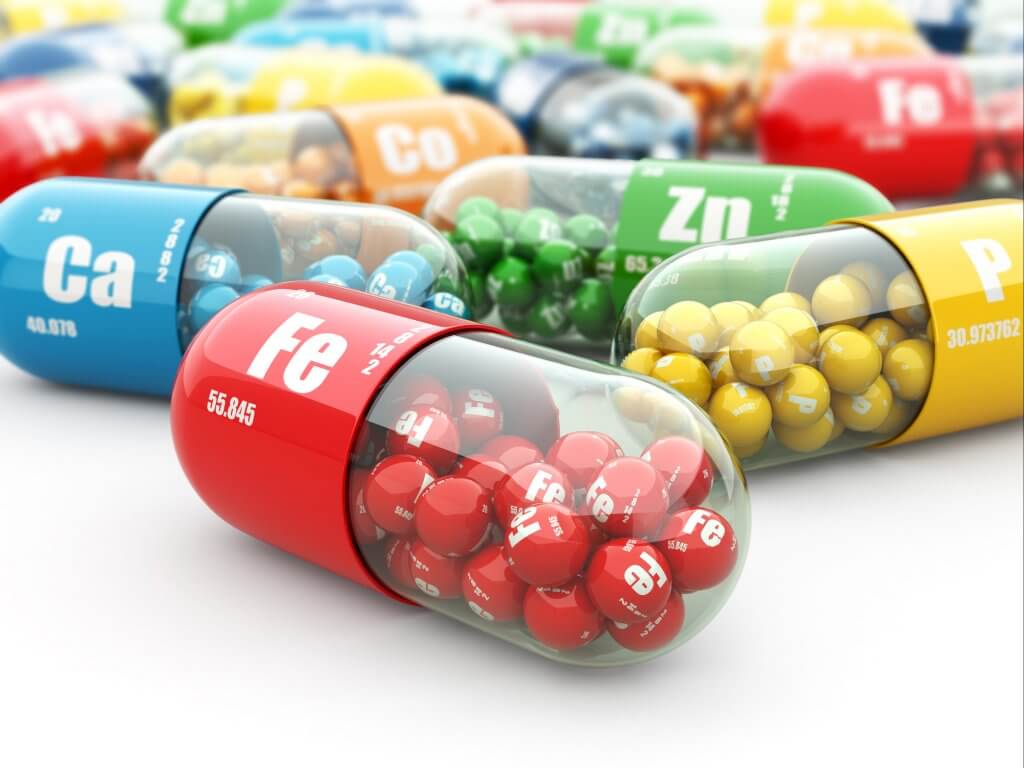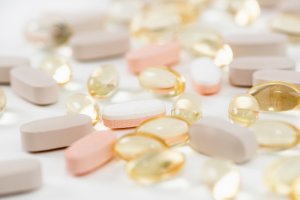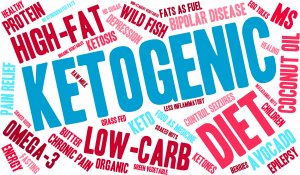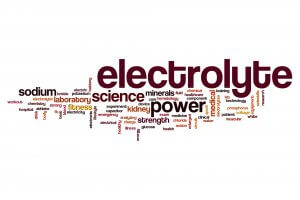 Getting started on the journey towards success on a ketogenic vegan diet requires a lot of preparation and careful work long before you change your dietary schedule.
Getting started on the journey towards success on a ketogenic vegan diet requires a lot of preparation and careful work long before you change your dietary schedule.
Like a marathon or even a sprint, you can’t just jump into a strenuous exercise without a little bit of stretching or preparation.
One of the most important ways to prepare for this change in your life is to find high-quality electrolytes and supplements that you can integrate into your daily schedule.
These items are essential because they help you avoid the keto flu and other problematic health conditions that can throw you off your diet or even threaten your overall well being.
While the keto flu isn’t necessarily a life-threatening condition, electrolyte imbalances may be deadly if they are allowed to persist and worsen over an extended period.
And the unfortunate truth is that any stringent diet can lead to a lack of these essential items in your body.
Therefore, the rigorous and demanding nature of the vegan ketogenic dietary method means that your risk of developing these imbalances is higher than usual.
That fact is particularly true because you won’t be eating the animal-based products that can often provide you with an abundant supply of these items.
However, I understand that sticking to your ethical choices is important and I applaud you for it.
However, I want to make sure you get through your vegan keto routine safely.
That’s why I have created this comprehensive and easy-to-understand article for those beginning their quest for success on a ketogenic vegan diet.
I will carefully explain why electrolyte imbalances are dangerous, how the keto flu can be distracting, and give a detailed list of which supplements you need and why they matter to your overall health.
In this way, you can be fully prepared for these conditions and avoid any problematic reactions during your transformation and continue to experience all the benefits.
Why Electrolytes and Supplements are So Crucial
 Electrolytes are so essential for your body because they help it operate on a fundamental level.
Electrolytes are so essential for your body because they help it operate on a fundamental level.
Simply put, electrolytes work to create the electrical functions of your cells.
They attract electrical charges and conduct them through the body.
These charges are crucial because they operate every organ, muscle, and nerve in your body. Electrolytes help you:
- Think
- Move
- Breathe
- Pump blood
- Filter waste
- Live your day-to-day life
That’s because they are elemental items that keep your body operating without failure.
Most people are unlikely to suffer from electrolyte imbalances because they are so common in most of the foods that we eat regularly.
However, those who are on a ketogenic diet may suffer from a higher risk of this problem because of the severe nature of their diet.
Even though a ketogenic diet is a healthy routine when done properly, it is a naturally restrictive routine that does eliminate some items from your food intake.
That’s because it is easy to ignore or underestimate how much cutting out carbs can also trim your intake of these critical nutrients.
People are usually so busy with tracking their calories that they may miss these essential items.
Many of the most robust electrolytes and the most vital are common in fiber-rich and sugar-high foods. Cutting these out of your diet, therefore, increases your risk of having a dangerous electrolyte imbalance.
That danger is increased even higher for those who are on a ketogenic vegan diet.
That’s because you can make up the electrolyte difference by eating meats and cheese that are saturated with these nutrients. As a vegan, you obviously cannot eat these foods.
Your restricted diet puts you in a challenging and potentially dangerous situation that requires a careful approach to avoid.
As a result, those vegans on a ketogenic diet are often walking a tightrope between balance and imbalance.
However, that doesn’t mean that these balance problems are inevitable for you.
Many vegans go on a ketogenic diet and avoid suffering from these symptoms.
In fact, most people on a ketogenic diet avoid these problems because they craft a diverse array of foods to eat every day.
That said, a large number of individuals on this diet do suffer from symptoms of what is known as the keto flu.
This issue is particularly noticeable in vegans because so much of their menu focuses on carbohydrates.
If this problem starts popping up early in your routine, there is a good chance that you could suffer from an electrolyte imbalance in the future.
While the keto flu isn’t always directly correlated to electrolyte imbalances, it can contribute to its development.
As a result, it is essential to understand this problem, why it occurs, and how it can contribute to the development of electrolyte imbalances.
This knowledge is crucial for any vegan who is starting this journey towards greater health.
The Keto Flu Can Become Problematic
 The keto flu occurs when you start taking carbohydrates out of your diet and replacing them with proteins.
The keto flu occurs when you start taking carbohydrates out of your diet and replacing them with proteins.
Some people who are on a ketogenic diet never suffer from this reaction.
However, others may experience symptoms as soon as the first day and feel them for up to a week or more after they start their diet.
Vegans who go on a ketogenic diet are likely to experience this reaction even more potently than those who are not vegan.
That’s because they are more reliant on carbohydrates in their diet than people who may otherwise regularly eat meat.
While many vegans are still good at getting a safe level of protein in their diet, they don’t get nearly as much as people on a meat-heavy diet.
As a result, the keto flu often hits vegans more quickly and devastatingly than those who are not vegan.
It can be a distracting and even painful situation that may lead to a person quitting the diet or otherwise suffering from complications.
When it occurs, it creates flu-like symptoms that can be rather painful to handle, including:
- Flushed skin
- Headaches
- Nausea
- Fatigue
- Dizziness
- Brain fog
- Irritability
- Sleep difficulties
This reaction occurs because your body is reacting in a negative way towards your lack of carbohydrates.
In a sense you are having a withdrawal in the same way a person addicted to drugs may have after quitting.
One of the major contributing factors of this kind of keto flu is an imbalance of important electrolytes in the body.
If you notice these symptoms, you need to make sure you start taking appropriate supplements to avoid any more serious concerns.
Electrolytes That You Must Take to Stay Healthy
 A regular and safe intake of electrolytes can avoid the dangers of the keto flu and other severe health risks.
A regular and safe intake of electrolytes can avoid the dangers of the keto flu and other severe health risks.
The following electrolytes are the most important you can take while on a ketogenic diet.
Try to find foods that contain these nutrients and purchase supplements that provide you a replacement for what you cannot get from your food.
Typically, it is possible to find these electrolytes in any number of daily vitamins.
However, you may need to talk to a pharmacist about a stronger supplement if you can’t locate a multivitamin that meets your needs.
In some instances, you may be able to find a comprehensive electrolyte supplement that suits your specific needs as a vegan on a ketogenic diet.
Potassium
Many adults end up deficient in potassium, which is a problem because it is such a crucial nutrient that benefits you in many ways.
It is important to have at least 2,000 milligrams of this item in your diet every day to avoid any complications, such as constipation and confusion.
However, people on a ketogenic diet, including vegans, need 1,000 milligrams more to overcome the unique demands of their diet. In some instances, you may be able to get this amount from foods like nuts and spinach.
That extra potassium is needed because you are likely to be deficient in other types of essential electrolytes and can make up the difference by eating more potassium.
Eating more potassium also helps to keep your organs running more smoothly and efficiently.
Thankfully, most supplements should be available at around this level. Just make sure you don’t pass 4,700 milligrams in a day, or you run the risk of poisoning.
Sodium
People on a ketogenic vegan diet may be trying to avoid sodium because their doctors have told them that it causes water retention and other types of problems.
That isn’t quite what their physicians meant when they said sodium intake should be limited.
They are worried about excess intake caused by eating salty foods and using excessive salt for flavoring. In fact, this electrolyte is an essential part of your diet and should not be ignored.
However, the highly-salted nature of modern foods means that it is essential to make sure you don’t eat an excessive amount. Try to aim for about 3,000-5,000 milligrams every day.
I suggest that those on a ketogenic vegan diet just put their salt in the cupboard and never take it out again.
Salting food that is already high in sodium is like throwing extra dirt on a filled grave. That image may be morbid, but it showcases its excessive nature and why avoiding it is so vital for your overall health.
Magnesium
This mineral is another commonly ignored item that you simply have to have a supplement of when on a ketogenic diet.
This fact is particularly true of vegans because they are more likely to be working out and burning through a large amount of this mineral.
In fact, you may need to eat a little bit more of each of these electrolytes if you work out, but never more than the high limit I already mentioned in each section.
It is never worth risking poisoning yourself by ingesting levels that are too high.
Magnesium is so essential because it helps keep your nerves running, synthesizes proteins, and regulates your blood pressure. Beyond that, it also performs the other tasks required of electrolytes.
Vegans can get a healthy dose of this mineral in dark chocolate, hemp seeds, avocados, green leafy vegetables, various nuts, and seeds.
Unfortunately, some of these items are richest in carbohydrate foods, meaning you likely need a supplement to reach your 400-500 milligram needs.
Supplements That Can Help Keep You Even Healthier
Vegans on a ketogenic diet must take the following supplements every day to ensure that they avoid electrolyte imbalances.
These supplements also help improve their keto process and make it run more smoothly. This list might seem almost impossibly long, but it is important to make sure you get these supplements in your diet every day.
Before you go into this routine or start taking these supplements, talk to your doctor to see if you are low in any of these items.
They can help to identify deficiencies that you may have in your body and try to fix them for you.
Just as importantly, a doctor can make sure that a ketogenic vegan diet is right for you. Dieticians may also give you a prescription for a comprehensive supplement that covers your needs.
Vitamin D
Most people don’t get enough vitamin D because they rarely get a minimum of 30 minutes of sunlight every day.
While getting outside and catching some rays can help here, a good supplement is also a great choice. Vitamin D is important for those on a ketogenic diet because it helps to regulate your mood, hormone levels, and metabolism.
Electrolyte Supplements
I already talked about the electrolytes you need in your diet in depth already, so I won’t dwell on them too long here.
However, I wanted to emphasize their importance and the fact that you can get many all-in-one supplements that provide you with the electrolytes you need to be healthy. Just make sure it has potassium, magnesium, and sodium to get the most out of it.
All-in-One Vitamin
Find an all-in-one vitamin that will cover all of the deficiencies you may suffer while on a vegan ketogenic diet.
Try to find one that focuses on your gender and your age group because they are designed for your unique dietary and nutrient needs. These should be available in most pharmacies and don’t require a prescription to purchase and use.
Vitamin B12
A good vitamin B compound is essential for a vegan ketogenic diet. It can help to keep your body running smoothly and avoid serious health problems, such as anemia.
However, B12 is particularly crucial for vegans on a ketogenic diet. That’s because it is mostly present in foods like liver, trout, salmon, eggs, and various cereals. In other words, foods you won’t be eating while on this diet.
Long-Chain Omega-3 Fatty Acids
These healthy fats help keep your brain operating at a high level, and a provide a dose of electrolytes that you can’t afford to miss.
While you should be able to get some of these fatty acids in various nuts or even seaweed, they are mostly found in fish and other types of seafood.
As a result, a supplement of this item is a necessary item for any vegan on a ketogenic diet.
Iodine
Iodine deficiencies can cause serious problems with the thyroid, including its failure, that must be avoided at all costs.
Thankfully, it is usually pretty easy for most vegans to get this nutrient into their diet.
Unfortunately, cutting out many types of vegetables and fruits may make it a little tougher to get enough of it, so consider a supplement to boost your level to safe amounts.
Iron
Iron helps keep your blood healthy and robust and is common in a broad variety of foods, such as chicken, pork, pumpkin seeds, tuna, raisins, kidney beans, baked beans, apricots, and almonds.
As you can see, many of the foods on this list are verboten for your diet.
Therefore, a high-quality supplement is necessary to avoid anemia, which can cause weakness, nausea, and even mental confusion, anxiety, and depression.
Calcium
A diet rich in calcium ensures that you have strong bones, muscles, and nerves.
However, the most obvious source of this nutrient is milk and other dairy products.
As a result, all vegans need to take regular supplements of calcium to keep their bones strong.
It is particularly essential for those on a ketogenic diet because other foods that contain this nutrient, like beans, are harder to eat in a large amount without breaking the guidelines of your weight-loss method.
Zinc
Zinc is one of those nutrients that people don’t pay much attention to in their diet.
However, a deficiency can cause problems, such as cellular damage, diarrhea concerns, and even skeletal problems. Vegans aren’t likely to suffer from a deficiency of this supplement, as it is available mostly in vegan-friendly foods, like pumpkin seeds and green peas.
However, most of these foods are carbohydrates, meaning a supplement is necessary for vegans who are on a ketogenic diet.
How Much of Each Supplement is Necessary?
The amount of each supplement you need to take every day while on a ketogenic diet will vary wildly depending on the item and your food.
For example, a daily intake of just 13-15 milligrams of iron is enough to be healthy.
By contrast, a person needs only 150 micrograms of iodine every day to avoid any problems.
However, the restrictive nature of the ketogenic diet can make it tougher for vegans to reach these goals.
As a result, I’m going to list the dose you need of each supplement here to help make it easier for you to find a product or products that work for you. I’ll leave out iodine and iron, as I already mentioned that amount above:
- Vitamin D – 10–20 micrograms
- Vitamin B12 – 2.6 micrograms
- Fatty Acids – Omega-3, 250 milligrams
- Calcium – 1,500 milligrams
- Zinc – 8 milligrams for women, 11 milligrams for men
Please note that these are the daily recommended totals for these foods, not a specific supplement level.
So if you are already getting 500 milligrams of calcium in your day-to-day life, you only need a 1,000-milligram supplement to meet your daily recommended dose.
However, if you find that you completely lack in one or more of these nutrients or electrolytes, find a supplement that completely replaces them to avoid any dangerous imbalances.
In some instances, you may be able to find a single supplement that covers all of these dietary requirements in one fell swoop.
For example, many all-in-one vitamins are designed to suit these needs and to provide you with a healthy and comprehensive vitamin.
However, it is essential to check the label on this type of product before buying one to make sure that it contains the appropriate levels of nutrients for your dietary needs.
Talk to your doctor about this step before making it to ensure that you don’t make a grave mistake.
Finding These Supplements
There are many different places that you can find supplements like this near you.
Most health food stores or pharmacies should have a pretty large supply of multiple brands. Find those that work well for your particular cost needs and then try them out.
Typically, you won’t have to take more than one dose of each supplement every day to get a positive effect.
You can further streamline your dosing needs by finding supplements that combine a few of these items into one product. In fact, it’s not a bad idea to get a weekly pill scheduler into which you can place your doses for each day.
This step helps to make sure you don’t miss any critical supplements during your ketogenic vegan diet.
While this might seem like a lot of work to stay on a diet, it will keep you healthy and maximize your weight loss.
Even better, it can help you make this lifestyle a permanent change that provides you with a significant amount of happiness and personal focus.
So don’t hesitate to get started on your path to ketogenic vegan glory!
Have more questions? Be sure to check out our ketogenic vegan faq section or visit our community forums today!
Table of Contents